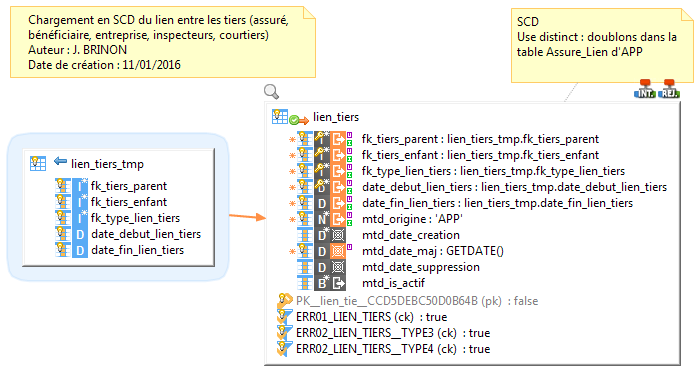Oops I missed that point.
Maybe this will do :
FROM %x{md:objectPath(../../ref:work(), ../ref:target()/mdj:pattern(mdj:xpath(.,'INTEGRATION_MASK')))}x%
A few words on this expression :
- The "md:objectPath" function builds an object path (well named

), the first argument being in this case a reference to the desired schema, and the second argument being the table name.
- First argument "../../ref:work()" is evaluated relatively to the CK => the parent of the parent of the CK is the schema, on which we now get the reference to the work schema.
- Second argument "../ref:target()/..." refers to the CK's parent => the table, and applies a replacement pattern to its integrationMask.
This can seem a bit obscure and magical. This kind of advanced usage is usually covered in the advanced training sessions - and YES it IS magical

Please let me know if this works fine.




